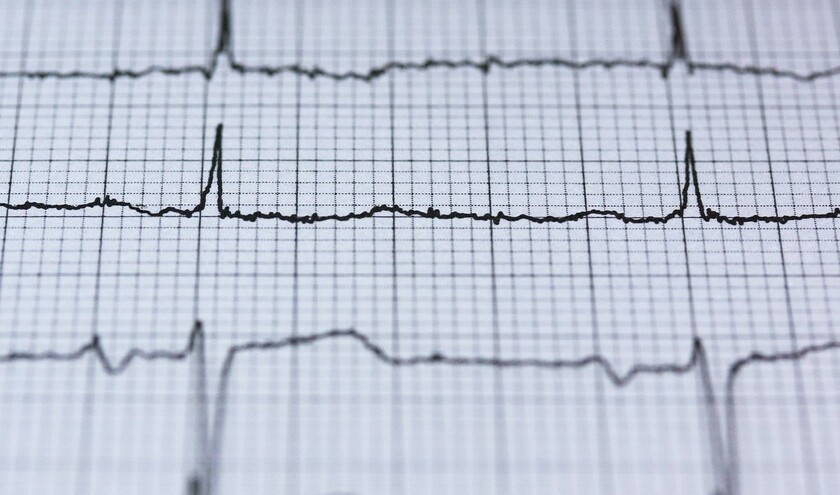Researchers at Imperial College London and Imperial College Healthcare NHS Trust believe their work, published in Lancet Digital Health, could be used in the NHS within five years. It would enable doctors to find disease earlier and prioritise the most urgent cases for treatment.
The researchers used very large sets of data from international sources, consisting of millions of ECGs previously taken as part of routine care, to train their AI model to analyse an ECG and accurately predict which patients went on to experience new disease, worse disease, or who subsequently died.
ECGs depict the flow of electrical signals within, and between, the different chambers of the heart - the atria and ventricles. The AI model was trained to ‘read' that information and see patterns in the electrical signals. Researchers say the model can see and understand ECG patterns with more complexity and subtlety than a cardiologist can.
Dr Arunashis Sau, an academic clinical lecturer at Imperial College London's National Heart and Lung Institute and cardiology specialist registrar at Imperial College Healthcare NHS Trust, said: ‘We cardiologists use our experience and standard guidelines when we look at ECGs, sorting them into normal and abnormal patterns to help us diagnose disease.
'However, the AI model detects much more subtle detail, so it can spot problems in ECGs that would appear normal to us, and potentially long before the disease develops fully.'
The AI model, known as AI-ECG risk estimation or AIRE, was able to correctly identify the risk of death in the 10 years following the ECG in 78% of cases. The remainder of cases where the model was wrong, say researchers, could have been influenced by other unknowable factors.
The system can predict future health risks such as heart rhythm problems, heart attacks and heart failure, as well as when someone would die from a non-heart related cause. The researchers found it could predict these risks with a high level of accuracy.
Dr Sau added: ‘ECGs capture a great deal of information from around the body because diseases such as diabetes, that affect organs like the kidneys or liver, will also affect the heart in some way. Our analysis shows that the AI can tell us a lot about not only the heart but also what is going on elsewhere in the body and may be able to detect accelerated aging.'
The researchers also analysed imaging and genetic information, which helped them confirm that the AI predictions were linked to real biological factors in the heart's structure and function.
Senior author of the study is Dr Fu Siong Ng, reader in Cardiac Electrophysiology at the National Heart & Lung Institute at Imperial College London and a consultant cardiologist at Imperial College Healthcare NHS Trust and Chelsea and Westminster Hospital NHS Foundation Trust, said: ‘Our work has shown that this AI model is a credible and reliable tool that could, in future, be programmed for use in different areas of the NHS to provide doctors with relevant risk information. This could have a positive impact on how patients are treated, and ultimately improve patient longevity and quality of life. It could also reduce waiting lists and allow more efficient allocation of resources. We believe this could have major benefits for the NHS, and globally.'
He added: ‘The important next step is to test whether using these models can actually improve patient outcomes in clinical studies.'
Trials of AIRE in the NHS are already planned in hospitals across Imperial College Healthcare NHS Trust and Chelsea and Westminster Hospital NHS Foundation Trust. These clinical trials will focus on evaluating the benefits of implementing the model with real patients and will start by mid-2025.
Dr Sau added: ‘We now need to see how the model performs in a real healthcare system. But in the future, it's a possibility that we could see patients provided with wearable technology that provides doctors with continuous remote monitoring and a potential alert system.'
The research was funded by the British Heart Foundation and received support from the NIHR Imperial Biomedical Research Centre.



